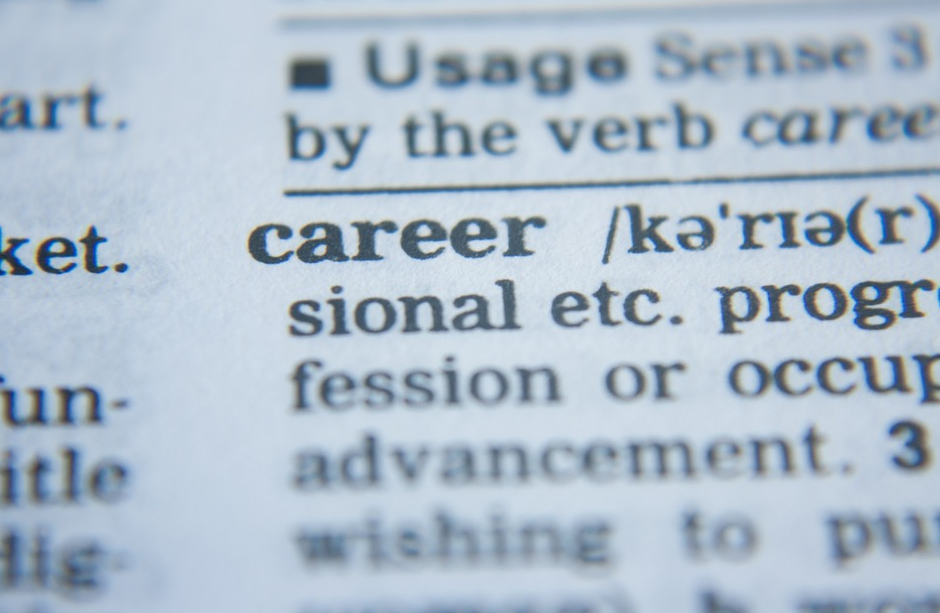When you start school, one of the first questions that people ask you is what you want to be when you grow up. It’s a big question for a little kid, isn’t it? Choosing what you want to do for the rest of your life is probably the biggest decision you could ever make, and choosing wrong can make you feel like an epic failure. Everything you do in your school career, from the subject choices that you make to the extra-curricular choices that you make affects your job prospects in the future. Big decision? Just about!
We go from being teenagers having to ask for a bathroom pass, to applying for college degrees that will determine the pathway you take for the remainder of your successful, adult life. Choosing the right career isn’t easy, there’s no doubting that, but choosing something that makes you happy will help you with getting a job once you leave college. It takes hard work, planning and a lot of self-reflection to decide what you want to spend the next three to five decades doing with your life. When you consider your career options, you should think long and hard about what you’re interested in. If you are interested in a good argument and want to do some good in the world, training as a lawyer and joining a firm like http://www.elliswhittam.com is going to serve you well. If you’re squeamish, you’re hardly likely to be headed to medical school for a degree in surgery. If you aren’t a lover of numbers, then spending the rest of your life doing taxes for people isn’t going to be the right road for you.
What would you want to do if you didn’t have to work and if money wasn’t an object? Think about what makes you happy. When you have a job to go to every day, you want to make sure it’s one you want to be in. There’s nothing worse than going to a workplace every day to do a job you hate. The college degree you choose should help you get a step into the job you want to spend the rest of your life doing. You can also choose your career based on your hobbies. People who love art can turn their doodle habit into a career as an illustrator or an animator. Those who play basketball as an extracurricular can ride a career to professional player. It’s all about what you love to do, what earns you the salary you see yourself achieving and how far you can go in your career. No one wants to have a ceiling in their career – the ability to be promoted and continue to progress is an important one.

Hobbies and interests are big factors when choosing a lifetime career goal, but you also need to consider your skills. You could be the best artist in your class, but if you haven’t got the ability to stay focused and it won’t earn you a good salary as a career, it may not be the best choice in the long-term. You may find classes in biology boring and tedious, but you excel in those classes. Finding a balance is one of the most adult decisions you will make in your life and it’s not an easy one. There are plenty of careers aptitude tests like this one that you can take to determine what would be right for you. This includes questions about your skills, interests, the style of learning you have and your values in life.
It may seem like an odd thing to think about, but the way you value certain things is going to impact your career decisions in a big way. Some careers and companies out there are fairly cutthroat and if you aren’t prepared for a career with pressure, then you need to decide early on what values you hold for your future career. There are five big questions you should ask yourself when you are making the biggest decision of your life, and we’ve listed these for you here:

1) What are you good at?
Not having one burning passion for a career doesn’t mean you can’t eventually figure it out. Being a teenager about to embark on a college career is overwhelming in itself and you’ve been fed the ‘follow your dreams’ line since you were a toddler. Just because you may not have a direct career goal right now, doesn’t mean you won’t at some point in your life. The beauty of college is that you can always go back and do your degree at a later age. You can know what you’re good at and not be quite sure, and that’s perfectly okay. Maybe you want to see some of the world and be care-free for a few years before settling down. Maybe you want to go straight into work for a while and get some dollars behind you before you decide which career can make you happy. None of these options are bad options. Travelling, experiencing other cultures and enjoying life is all part of being young. You can list all your positive attributes, skills, hobbies and things you enjoy experiencing before choosing the next step in your life. That kind of deep thought and decisiveness is a positive attribute that you should focus on.
2) Promotion or prevention?
Everyone who works a job has to be motivated to keep waking up every day and heading into the office. Deciding the motivation factor, however, varies from person to person. If you are someone who is focused on the idea of promotion, raising through the company and never hitting a career ceiling, you are likely someone who is creative and who seizes new opportunities. You are also probably someone who is impulsive, which isn’t always the best trait to have in a career. If you are someone who is focused on protecting everything you’ve worked on and maintaining a strong position in your company, then you are someone who prefers reliability. Knowing which one you are will go a long way in helping you decide what career you want to be involved in.
3) The best environment?
Your personality has to fit the role that you choose. Outgoing, extroverted and excited people are likely to feel trapped in a role that sits behind a desk pushing paperwork 9-5. Your personality needs to fit the environment and someone who is outgoing will need a role that pushes them, gets them in the thick of the action and is a little louder than they expect. Being in the right environment for your personality will help you to succeed. Your passion is important here. Your career can dictate the rest of your life and how it will go, and you can feel as if you have a secure place in the company you choose.

4) What lifestyle appeals to you?
In every role, whether you are college degree educated or not, you start from the bottom. You will have to work hard and push yourself through the lower levels of the company to get to a management or a higher position. For some, this kind of ambition just isn’t present. It doesn’t mean they’re lazy, just that they aren’t interested in working more than living, even if it does reap rewards for them in later life. The thing is, it’s important to look right ahead to the ‘after’ bit of your career. How do you plan to support yourself after the children have grown up? How do you want to spend your days? The way you choose to behave in your early years in your career will determine the type of lifestyle you have later on. If you want to own a home and spend your twilight years cruising around the world and seeing all the sights, you need to work for that kind of lifestyle. If you don’t have the salary to do that, then hard work is right there in front of you.
5) Where will you base yourself?
One of the biggest career impacts you have ahead of you is how it will affect your living arrangements. If you want to travel the world, then a career at a desk probably wouldn’t be for you. If you are the type of person who never wants to leave the town you’re living in, then a desk role or a role where you can progress securely would be better.
Each of these questions mean you have a lot to think about when it comes to choosing a career that you want to do for the rest of your life. You’ll have a lot of big choices to make from the moment you start school, but the important thing is to make sure you’re doing what is right for you and not for someone else. Choose the vision you have for your life and make it count.









